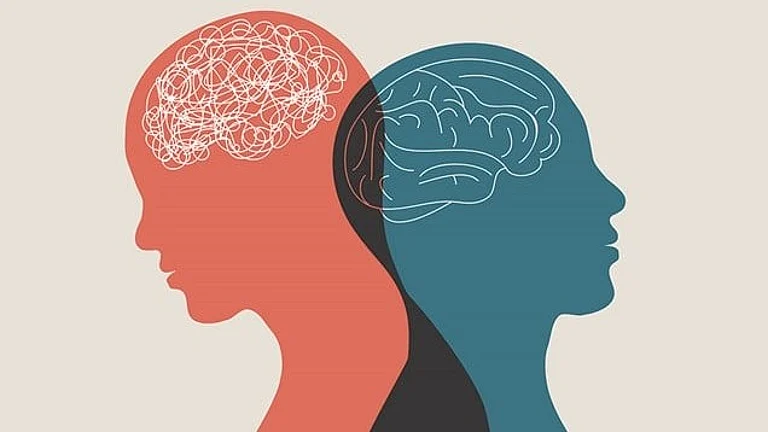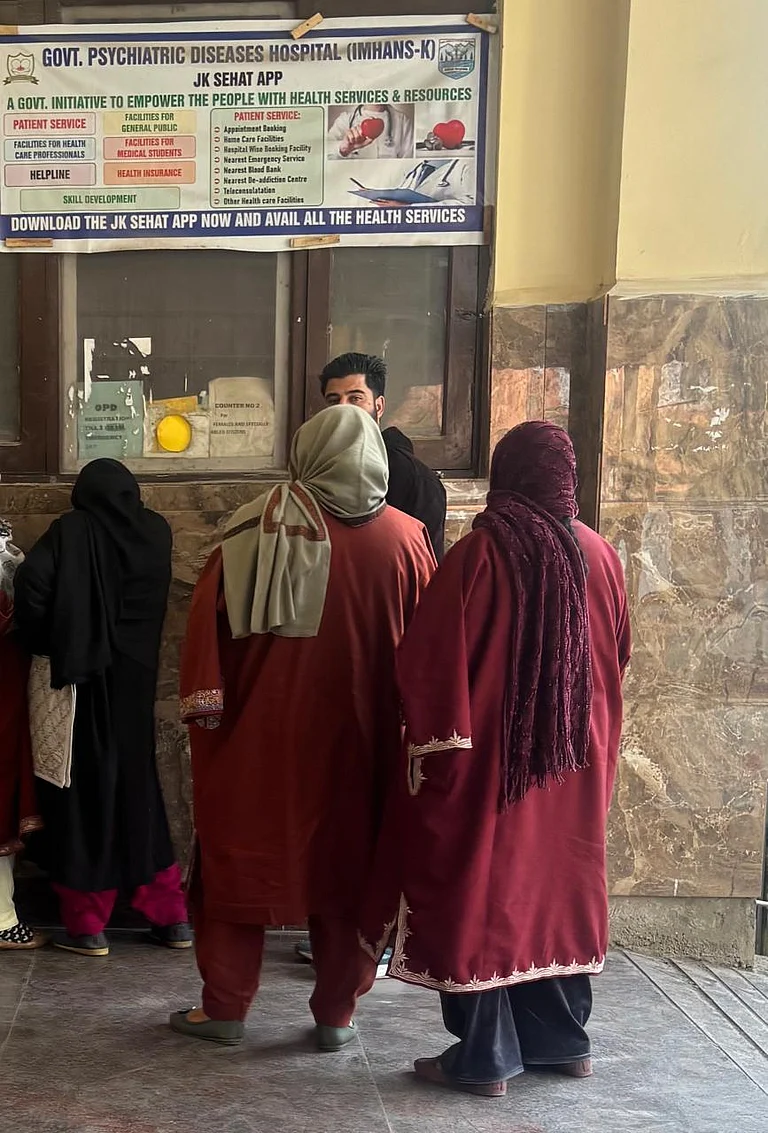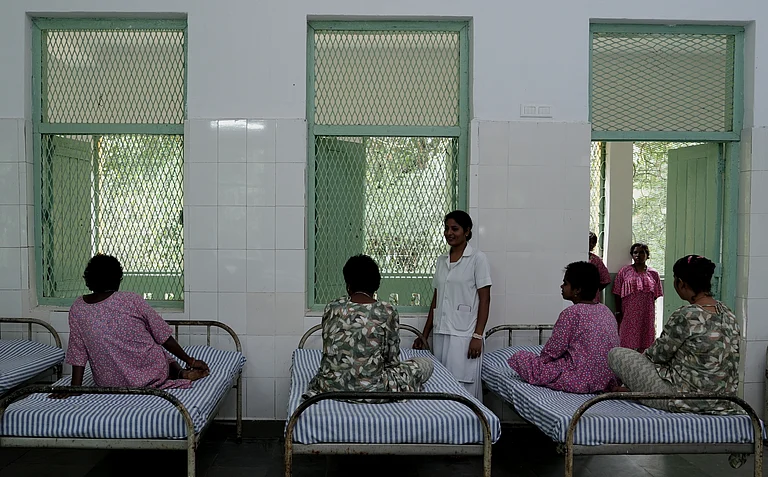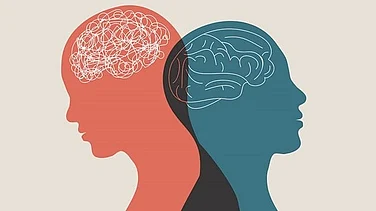Freedom, I feel most acutely when I find myself laughing, wide open laughter, irreverent laughter, laughter of whimsy, laughter I was slapped into muffling as a four-year-old. Laughing was considered defiance, as though it meant a dismantling of the beliefs that insisted that girls must not be heard, or seen, for that matter. As I grew older, I seldom laughed or spoke much and disappeared more and more into myself. The only times I wanted my presence to be known was when Ma was home. Ma, trying to find semblance in a world that was constantly trying to shame her for caring for her brother.
Ma was everything I wanted to be when I grew up. She was everything beautiful in the world around me. And yet, as I got older, I saw her being reduced, humiliated. It was unbearable to witness her helplessness. I held her often, telling her that I would always be with her. As inconspicuous as I was at 12, I was in the midst of my parents’ marriage falling apart.
I missed Ma very much when we moved from Bangalore to Chennai. When she joined us six months later, I was ecstatic. Finally, I could find a space safe enough to be myself. A year later I was sent away to a boarding school. I was there for a year-and-a-half. A traumatic period which I was glad to leave behind. I couldn’t wait to be with Ma. But she seemed different. I found her crumbling. She was working all the time at the new factory, and spending time with Sushil mama’s doctors. The fights at home had become louder, she was fighting back, defending Sushil mama. I didn’t understand whose side I was supposed to be on. But I couldn’t look away from my mother’s grief. I began telling her that love is not meant to hurt. That she didn’t deserve to be abused. She must leave. At least it would mean a life that wasn’t painful, where we could find peace. I don’t really know how I grasped all this at 13. I gave her strength from a well I didn’t know I had. I pushed and pushed until she left the house, with me, my brother and Sushil mama in tow.
After a long, winding road of violence and adversity, our path became less strewn with rocks and more with a sense of peace. Ma became one of the founding members of AASHA, a support group of caregivers of people with mental illness. Stigma and shame no longer lived in our household. I followed her everywhere and grew up alongside her advocacy of banishing stigma from people’s lives. In a strange turn of events, at 22, I married an individual whose sister had schizophrenia. I didn’t know about it then; it took a few months for him to disclose this to me. How deep and ingrained are the tentacles of stigma and shame that this illness was hidden from me, someone who had grown up advocating for freedom from the shackles that society places on the mentally ill. I embraced my sister-in-law with a promise that she would always find me in her corner. She spent her last birthday with me. She passed away the same year my husband and I separated after having adopted a 14-month-old baby girl. My daughter raised in the same house as Sushil mama, with the same empathy and passion that drives Ma and me to stand with the vulnerable.
Ratna Chibber, 70’s
A sense of liberation engulfed me the day I was told that my brother had a mental illness called schizophrenia. It had taken ten years to diagnose, for us to finally understand that he was ill. He was suffering silently, unable to defend himself, unable to articulate his fears. Now we had a solution. Our journey had been long and arduous.
Sushil had been a studious, gentle teenager with a good sense of humour, but had grown into a troubled adult who seemed to be excessively preoccupied with himself. He completed his diploma in Mechanical Engineering but couldn’t hold on to any job. I was married by this time and adjusting to a new reality of demanding in-laws. My parents were living in Allahabad with Sushil. Their letters would take a month to reach me, the only thread I had to feeling loved. Papaji didn’t tell me about Sushil or the difficulties they were facing.
During a vacation to Allahabad, I got an inkling that something was wrong. Mummy told me a neighbour had said something was not right with Sushil. Furious, Mummy asked her, ‘‘Tumhara matlab yeh pagal hai?” I told Mummy to send Sushil to Bangalore where I was living with my family. Sushil’s illness had progressed; he began to talk to himself. The family accused him of being lazy and making excuses.
I didn’t know what to believe, yet my heart would break when I saw him being hit and abused. Sushil had to do all the menial jobs in the house—this was a way to justify his presence. Many nights, he would sleep in the factory filled with mosquitoes, and snakes in the vicinity. Having no voice for myself, I couldn’t muster the courage to stand up for us. We shifted to Chennai after a few years and Sushil came with us. The kids were nine and 13 then. The business had to be moved too, so I stayed back in Bangalore till everything was wrapped up.
At home, we were ashamed of Sushil’s behaviour. He would be asked to stay in his room whenever guests came, until one day, a family friend suggested that he should be taken to a doctor. Feeling overwhelmed, I agreed immediately. An appointment was fixed at Schizophrenia Research Foundation and we met Dr Sarada Menon. For the first time, I found someone reassuring me that Sushil would be alright. He wasn’t pretending. He had schizophrenia—a mental illness that caused him to hear voices and respond to internal stimuli that was making him talk to himself. I wept for my little brother with whom I had spent a happy childhood. I went back home a different person. I met other people like me, caregivers—a word I learnt that day. They had stories similar to mine. I felt lighter, freed from the shame that I had been carrying so long. Every moment of the abuse he had endured was seared on my mind and I became determined to fight for him with all my strength.
MORE FROM THIS ISSUE
Share Your Stories Of Caregiving For Someone With Mental Illness: freedomfromstigma@outlookindia.com
In its August 21 issue, Every Day I Pray For Love, Outlook collaborated with The Banyan India to take a hard look at the community and care provided to those with mental health disorders in India. From the inmates in mental health facilities across India—Ranchi to Lucknow—to the mental health impact of conflict journalism, to the chronic stress caused by the caste system, our reporters and columnists shed light on and questioned the stigma weighing down the vulnerable communities where mental health disorders are prevalent. This copy appeared in print as part of the 'Je Suis Nightingle' story.


























